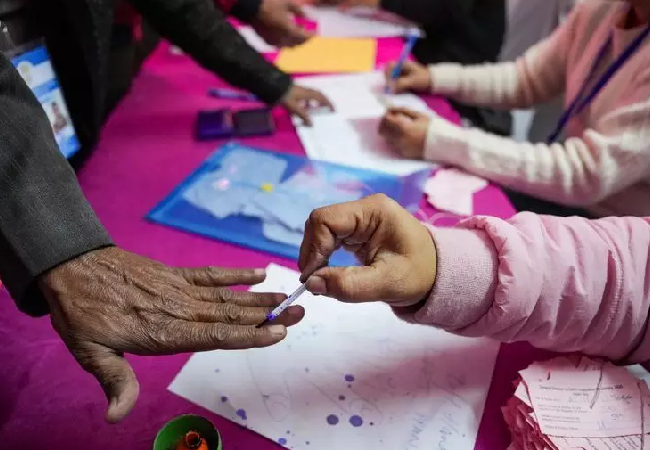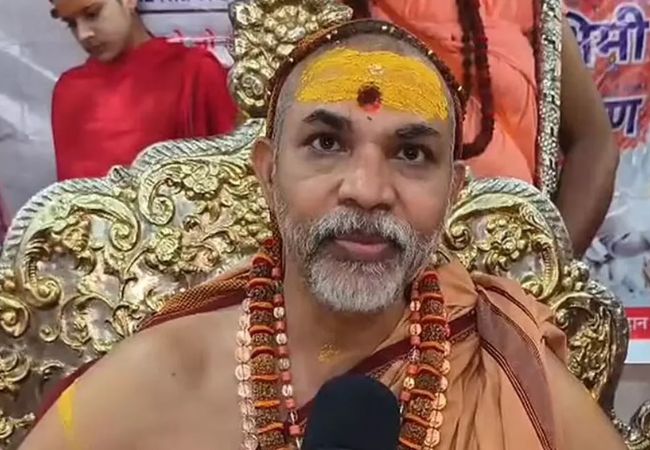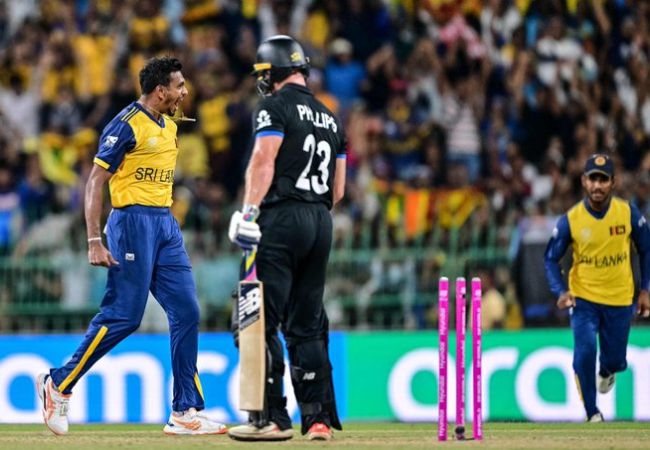New Delhi: A collective of concerned citizens, civil society organisations, and technical experts has launched a nationwide campaign for accountability in the electoral process, raising serious concerns over the functioning of the Election Commission of India (ECI) and the lack of transparency in the conduct of elections.
Coordinated by the platform ‘Vote for Democracy,’ the group has submitted a detailed memorandum to the ECI, reiterating six key demands aimed at restoring public faith in the electoral system. The memorandum comes in the wake of mounting scepticism around the use of Electronic Voting Machines (EVMs) and allegations of procedural manipulation, particularly after recent elections in Haryana, Maharashtra, and Delhi.
Among the central questions posed in the memorandum are:
- Why are the complete past and present voters’ lists not available in a searchable database on the ECI website?
- Why are Forms 17C, which record the number of votes polled, and other aggregate voter count data not publicly accessible in a digital format?
- Why is there no transparency in publishing Forms 9, 10, 11, 11A, and 11B that document additions and deletions in the voter rolls?
- Why is the EVM source code not open for public inspection to ensure software integrity?
- Why is there no full disclosure of Symbol Loading Unit (SLU) contents with oversight from independent technical experts?
- Why are VVPAT slips not counted in their entirety, and why can voters not verify and deposit the slips themselves?
The group has termed India’s current electronic voting system as semi-automated and riddled with vulnerabilities, demanding immediate systemic reforms. The six specific demands include:
1. Making all voter rolls—past and present—searchable and publicly accessible online.
2. Publishing Form 17C data from each booth and constituency in a searchable format.
3. Releasing Forms 9, 10, 11, 11A, and 11B detailing voter roll revisions.
4. Making the EVM source code open-source for public and expert scrutiny.
5. Publishing SLU contents and allowing monitoring by independent technical experts.
6. Restoring the integrity of the voting process by allowing voters to physically verify and deposit their VVPAT slips, followed by 100% slip counting. Final vote tallies, they argue, should be based solely on these physical paper records.
The memorandum, endorsed by 83 prominent individuals including former civil servants, judges, computer scientists, journalists, and grassroots activists, highlights concerns over the increasing opacity in electoral procedures. Among the signatories are MG Devasahayam, former IAS and Army officer; computer science experts Madhav Deshpande and Professor Harish Karnick; Justice D. Hariparanthaman and Justice B.G. Kolse Patil (retired High Court judges); Aruna Roy (Mazdoor Kisan Shakti Sangathan); Venkatesh Nayak (CHRI); Anjali Bhardwaj; E.A.S. Sarma, IAS (Retd); Teesta Setalvad; Prashant Tandon; and Raju Parulekar.
The signatories cited a recent CSDS survey that shows only 28% of Indians trust the ECI today, indicating serious democratic backsliding. They criticised the Commission’s perceived closeness to the political executive and its reluctance to act against violations of the Model Code of Conduct, including hate speech during elections.
During a recent three-hour national consultation with people’s organisations and civil society groups, participants highlighted the urgent need for systemic reform and greater transparency. State-wide consultations with expert committees are expected to follow.
Participants raised serious concerns over the integrity of voter rolls. In Maharashtra alone, 37 lakh new voters were reportedly added in the five months leading up to elections, without a credible explanation from the ECI. Similar concerns about large-scale voter additions and deletions have been flagged in states like Haryana, Delhi, and West Bengal.
The campaign aims to create national consensus around the need to replace EVMs with paper ballots, citing growing public mistrust. It seeks to address all facets of electoral conduct, from the misuse of the Model Code to the manipulation of voter lists, demanding a level playing field for all political actors.
The memorandum calls on the Election Commission to open itself to dialogue with citizens, technical experts, and political stakeholders. It warns that continued silence or inaction will deepen the erosion of public confidence in India’s democratic institutions.
The nationwide campaign is being led by several prominent voices including MG Devasahayam (Citizens Commission on Elections) and Teesta Setalvad (Vote for Democracy). A detailed programme outlining the next steps of the campaign is expected to be released shortly.
Let the Truth be known. If you read VB and like VB, please be a VB Supporter and Help us deliver the Truth to one and all.
Lucknow (PTI): The Uttar Pradesh Congress on Wednesday staged a statewide protest demanding a fair and transparent inquiry into the FIR lodged against Swami Avimukteshwaranand Saraswati and those who filed the complaint against him.
In a statement issued here, the party said memorandums addressed to Prime Minister Narendra Modi were submitted through district magistrates in all districts of the state.
Uttar Pradesh Congress spokesperson Manish Hindvi told PTI that the memorandums were handed over through the district administration in all 75 districts.
In the memorandum, the party alleged that Saraswati and his disciples were "unnecessarily harassed and humiliated" by police on the occasion of Amavasya and were prevented from taking a ritual bath (at the Magh Mela). It further alleged that some disciples were manhandled and taken to a police station.
The memorandum also claimed that an FIR was later registered against Saraswati, his disciple Swami Mukundanand Brahmachari and several unidentified persons in a sexual harassment case. It termed the case a "conspiracy" aimed at tarnishing the seer's reputation.
Citing Articles 25 and 26 of the Constitution, the memorandum stated that these provisions guarantee religious freedom and the right of religious denominations to manage their own affairs.
It described the position of shankaracharya held by Saraswati as "one of the highest spiritual posts in Sanatan tradition" and alleged that the entire episode appeared to have been "orchestrated in a planned manner".
"We request that the background of the persons who got the FIR registered be investigated in a transparent manner by a retired high court judge and strict action be taken against them," the memorandum said.
It also sought a "fair and transparent probe" into the allegations levelled against Saraswati so that the truth could be established.
Earlier, Uttar Pradesh Congress president Ajay Rai had told reporters in Varanasi after meeting Saraswati that the party stood firmly with him.
The Congress said it would continue to press for an impartial inquiry into the entire episode.
On February 21, an FIR was lodged in Prayagraj against Saraswati and his disciple Mukundanand Brahmachari on charges of sexually abusing two persons, including a minor, over the past year at a gurukul and religious congregations, including the recently concluded Magh Mela.
Days after he was booked, Saraswati had said on Monday that he would not oppose his arrest and asserted that the "fabricated story" would be exposed sooner or later.
At a press conference on Wednesday, Saraswati alleged that criminals rule in Uttar Pradesh, level allegations and influence investigations, as he denied having any contact with the two persons for whose alleged sexual abuse he has been booked.



_vb_77.jpeg)
_vb_00.jpeg)
